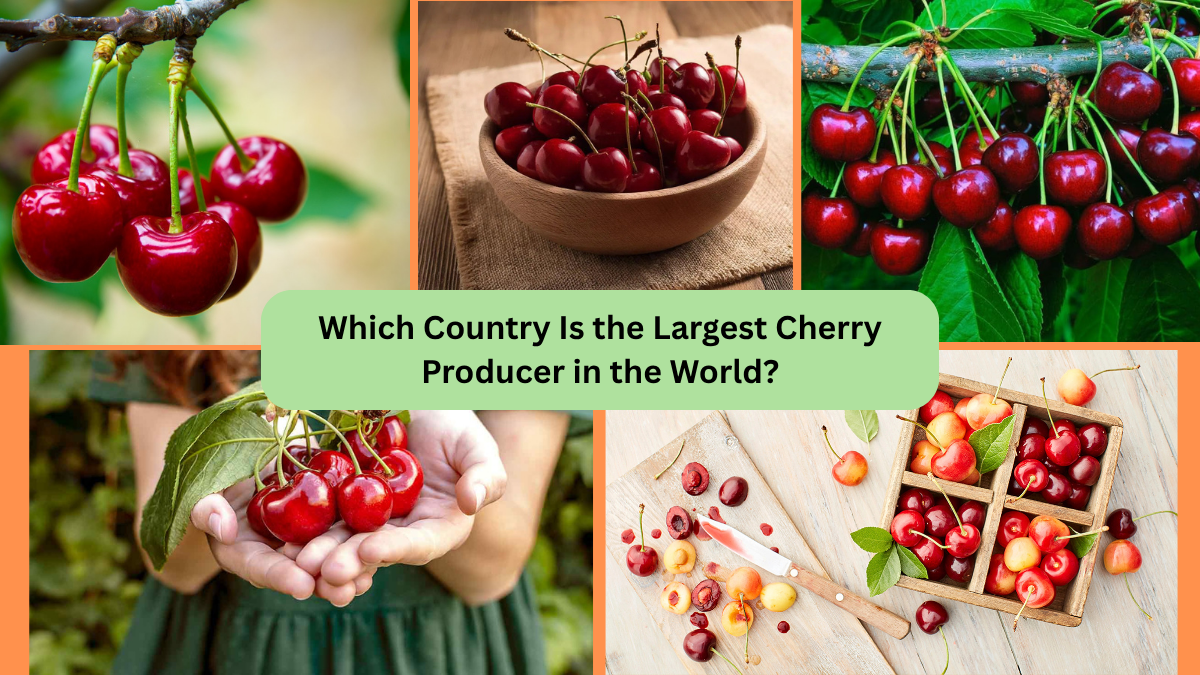Cherries — those plump, juicy, and vibrant little fruits — have long captivated fruit lovers and culinary enthusiasts alike. Whether enjoyed fresh, baked into decadent desserts, or preserved in jams and syrups, cherries are a beloved summertime treat around the world.
But if you’ve ever wondered where most of the world’s cherries come from, the answer might surprise you. The largest cherry producer in the world is Turkey — a nation renowned not only for its rich history and diverse landscapes but also for leading the global cherry market with unmatched production volumes.
In this article, we’ll take a deep dive into the fascinating world of cherries, explore the reasons behind Turkey’s dominance, and discover how this luscious fruit has captured hearts and palates across continents.
A Brief History of Cherries
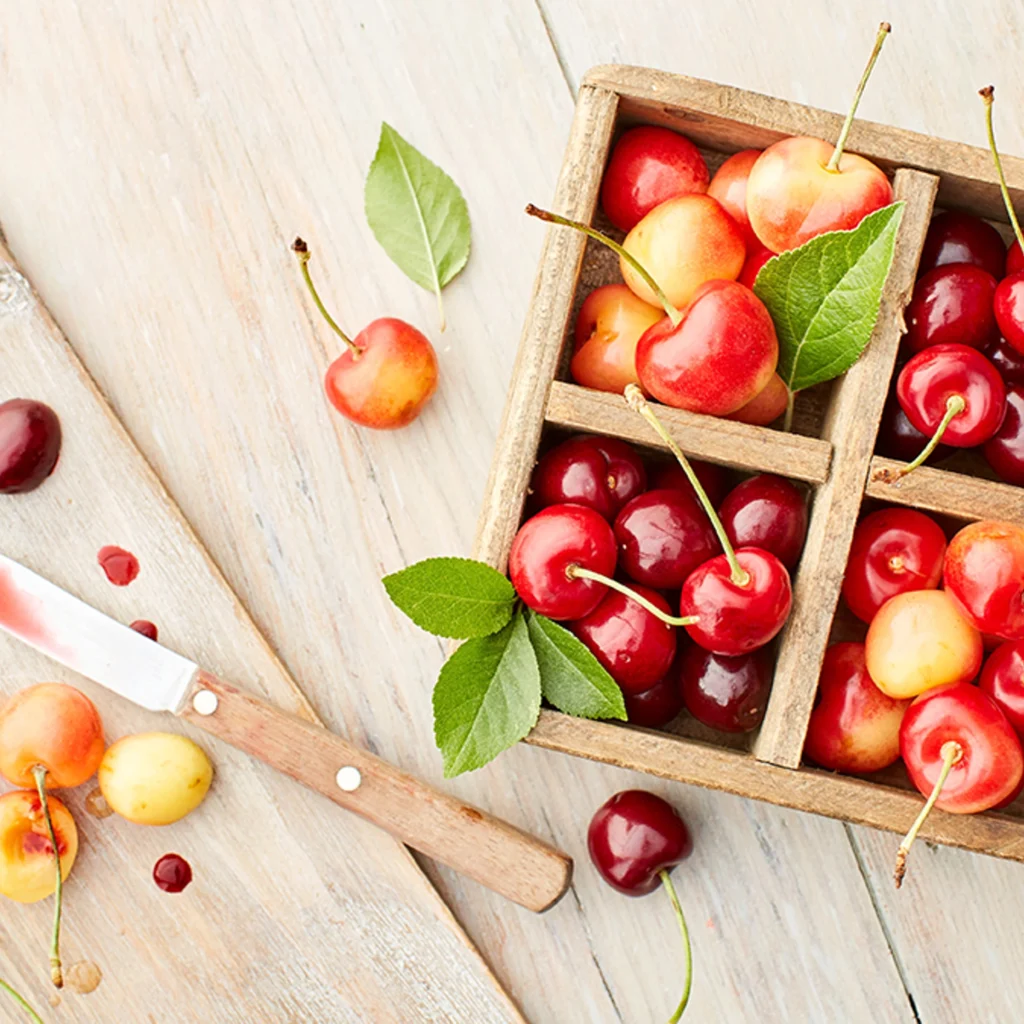
Cherries belong to the Prunus genus in the Rosaceae family, making them close relatives of peaches, apricots, and plums. The fruit has ancient origins, with evidence suggesting that wild cherries were consumed as far back as the Stone Age.
Historically, cherries were cherished by the ancient Greeks, Romans, and Persians. Roman General Lucullus is famously credited with introducing cherries to Europe from Asia Minor (modern-day Turkey) around 74 BC — and they’ve flourished there ever since.
Today, cherries are cultivated in temperate regions across the globe and celebrated in festivals, recipes, and health remedies.
Why Are Cherries So Popular?
Cherries are cherished not just for their irresistible taste, but also for their impressive nutritional and health benefits:
- Rich in antioxidants like anthocyanins and quercetin.
- High in vitamin C, potassium, and fiber.
- Linked to improved sleep quality due to natural melatonin content.
- Associated with reduced inflammation and muscle soreness.
- Widely used in desserts, beverages, sauces, and health products.
Their combination of health perks and culinary versatility makes cherries one of the most in-demand fruits globally.
Global Cherry Production Overview
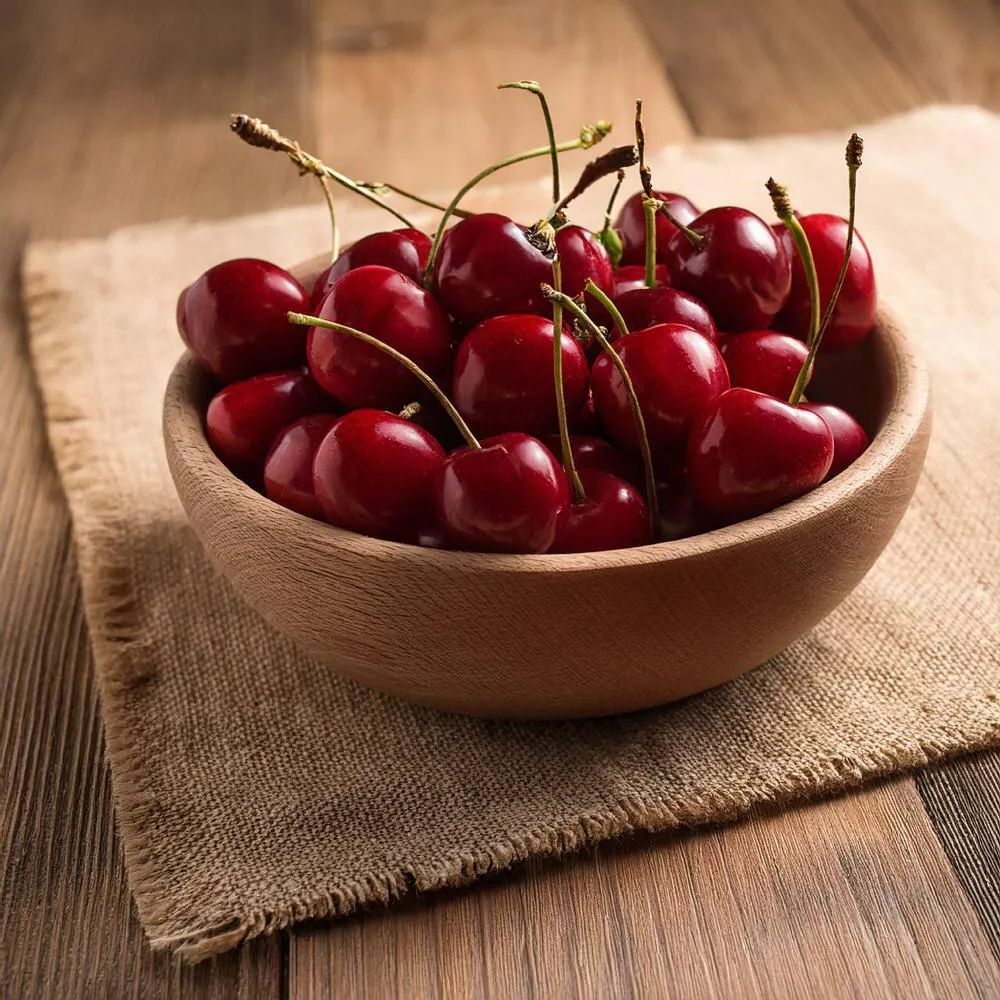
While countries like the United States, Iran, and Chile are well-known for their cherry cultivation, Turkey leads the pack by a wide margin when it comes to annual production.
Top Cherry Producing Countries (Latest Global Data)
| Rank | Country | Estimated Annual Production (Metric Tons) |
|---|---|---|
| 1 | Turkey | Over 850,000 |
| 2 | United States | Around 360,000 |
| 3 | Iran | 220,000 |
| 4 | Chile | 200,000 |
| 5 | Uzbekistan | 170,000 |
Turkey consistently contributes over 20% of the world’s cherry supply, making it the undisputed leader in global cherry production.
Why is Turkey the Largest Cherry Producer?
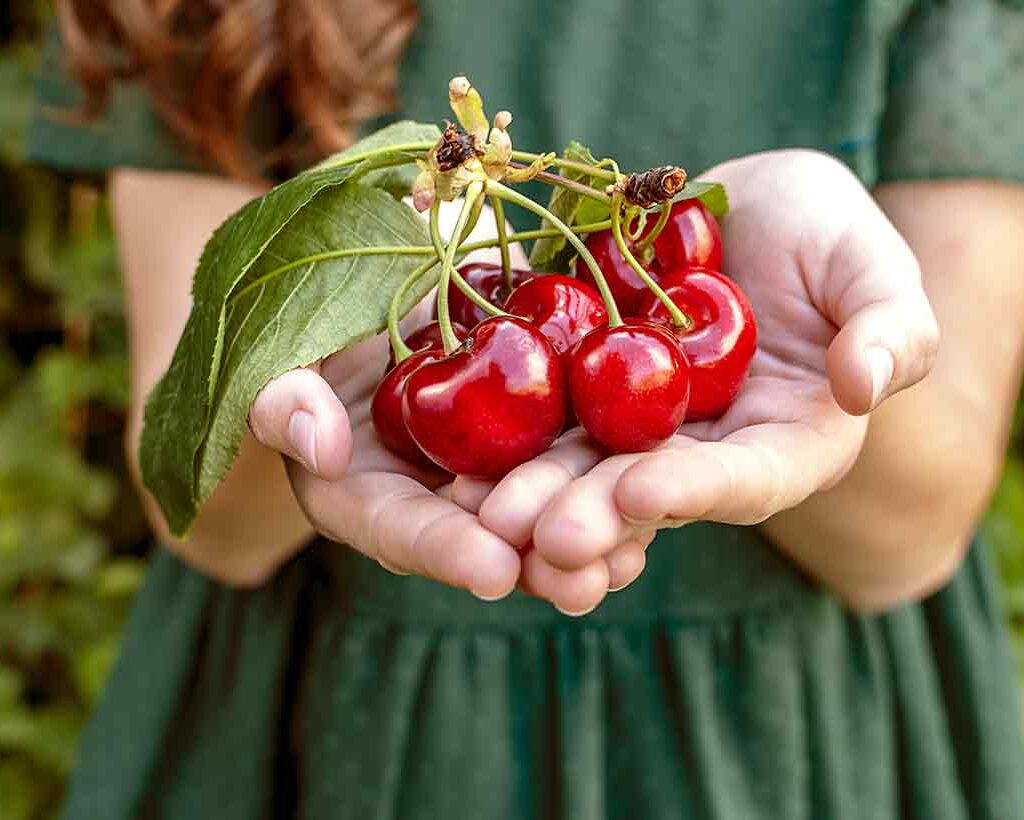
1. Ideal Climate and Geography
Turkey’s diverse topography and Mediterranean climate offer perfect growing conditions for cherries:
- Mild winters for bud dormancy.
- Warm, dry summers for fruit ripening.
- Fertile soil enriched by ancient volcanic activity.
Regions like Afyonkarahisar, Isparta, Konya, Manisa, and İzmir are particularly famous for their cherry orchards, with their high altitudes and crisp mountain air ensuring superior fruit quality.
2. Ancient Agricultural Heritage
Turkey’s relationship with cherries spans millennia. As one of the earliest countries to cultivate cherries commercially, Turkey has an unmatched tradition and expertise in cherry farming.
Local farmers use a blend of time-honored techniques and modern agricultural technology, ensuring consistently high yields and premium fruit quality.
3. Variety and Diversity
Turkey produces both sweet cherries (Prunus avium) and sour cherries (Prunus cerasus), including famous varieties like:
- Ziraat 900
- Napoleon
- Regina
- Starks Gold
This diversity allows Turkey to cater to various markets and export destinations.
4. Strong Export Market
Turkey exports cherries to over 50 countries worldwide, including:
- Germany
- Russia
- China
- United Kingdom
- Middle Eastern nations
Its proximity to key European and Asian markets, along with robust logistics infrastructure, makes Turkey a prime exporter of fresh cherries.
Economic Impact of Cherry Production in Turkey
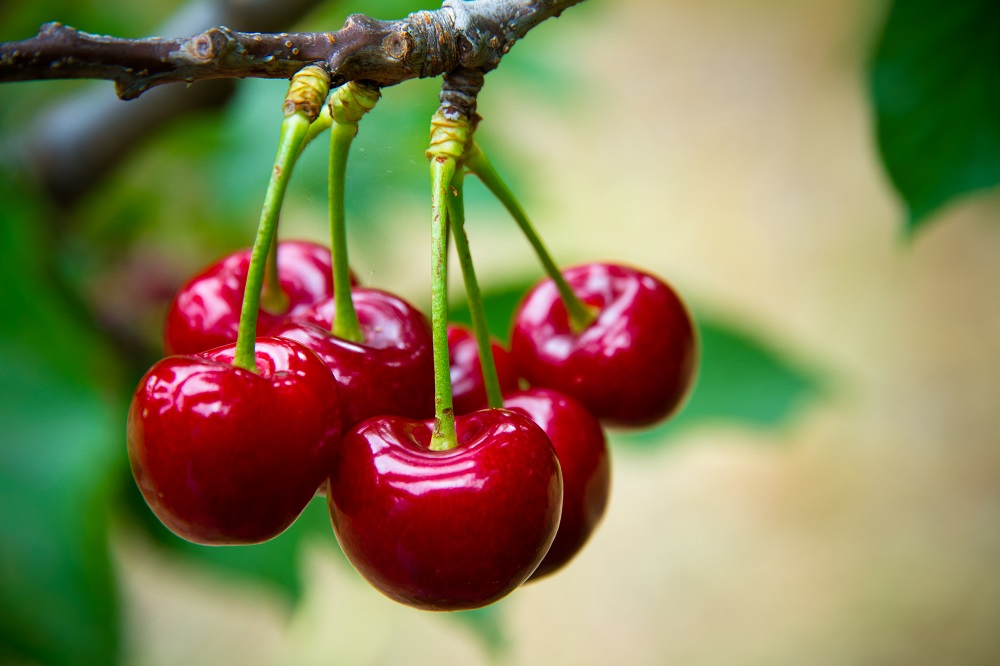
The cherry industry plays a vital role in Turkey’s agricultural economy:
- Provides livelihoods for over 500,000 people, including farmers, laborers, and exporters.
- Generates millions in export revenue annually.
- Drives rural development in major cherry-growing regions.
- Promotes local cherry festivals and tourism events.
Turkey’s position as the world’s largest cherry producer has also led to increased investment in cold storage, packaging, and transportation technology to support its growing international demand.
Cherry Production in Other Leading Countries
While Turkey holds the top spot, other countries also contribute significantly to the global cherry market.
United States
The U.S. is famous for both sweet and tart cherries, with major production in Washington, Oregon, California, and Michigan.
- Leading sweet cherry producer: Washington State
- Leading tart cherry producer: Michigan
Cherries are a vital part of American summer cuisine, starring in pies, jams, juices, and festivals like the National Cherry Festival in Traverse City, Michigan.
Iran
Iran’s cherry orchards, particularly in Tehran, Qazvin, and East Azerbaijan provinces, produce both fresh and dried cherries for local consumption and export.
Chile
Thanks to its southern hemisphere growing season (November to January), Chile is a vital supplier of fresh cherries during the Northern Hemisphere’s winter months, exporting heavily to China and other Asian markets.
Cherry Varieties and Their Uses
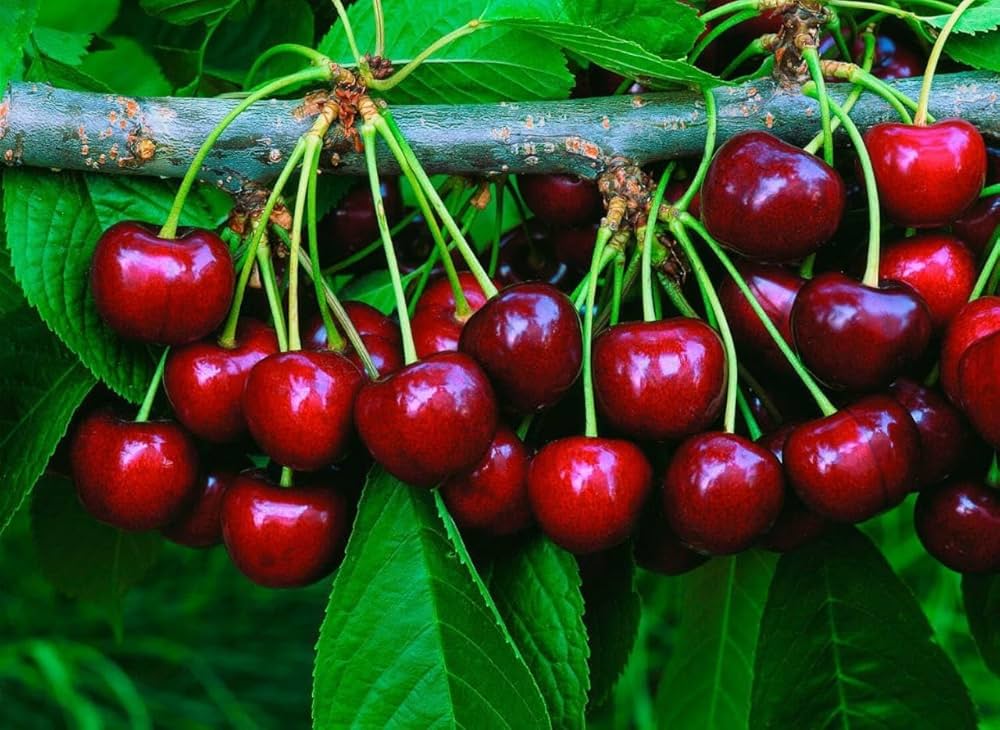
There are two main categories of cherries:
- Sweet Cherries (Prunus avium): Enjoyed fresh, in desserts, or preserved.
- Popular varieties: Bing, Regina, Ziraat 900, Napoleon.
- Sour Cherries (Prunus cerasus): Often used for cooking, baking, and juicing.
- Popular varieties: Montmorency, Morello, Oblacinska.
Cherries also make appearances in:
- Cherry brandy
- Jams and preserves
- Dried snack packs
- Dessert garnishes
- Traditional Turkish desserts like vişne reçeli (sour cherry jam)
Challenges in the Global Cherry Industry
Despite growing demand, cherry producers face several challenges:
- Climate change causing unpredictable weather and late frosts.
- Labor shortages during harvest periods.
- Market competition and trade barriers.
- Perishability issues, as cherries have a short shelf life without proper cold storage.
To combat these challenges, cherry growers worldwide are adopting precision agriculture, controlled atmosphere storage, and sustainable farming techniques.
Final Thoughts
To conclude, Turkey holds the title of the largest cherry producer in the world, thanks to its perfect climate, rich agricultural heritage, and strategic export markets. From ancient orchards to state-of-the-art farms, Turkey’s cherry industry is a beautiful blend of tradition and innovation.
Cherries aren’t just a seasonal delight — they’re a symbol of cultural history, economic vitality, and global culinary appeal. Whether you’re enjoying a sweet Turkish cherry in the summer or a tart cherry pie in winter, you’re experiencing a fruit with a story as rich and colorful as its flavor.
